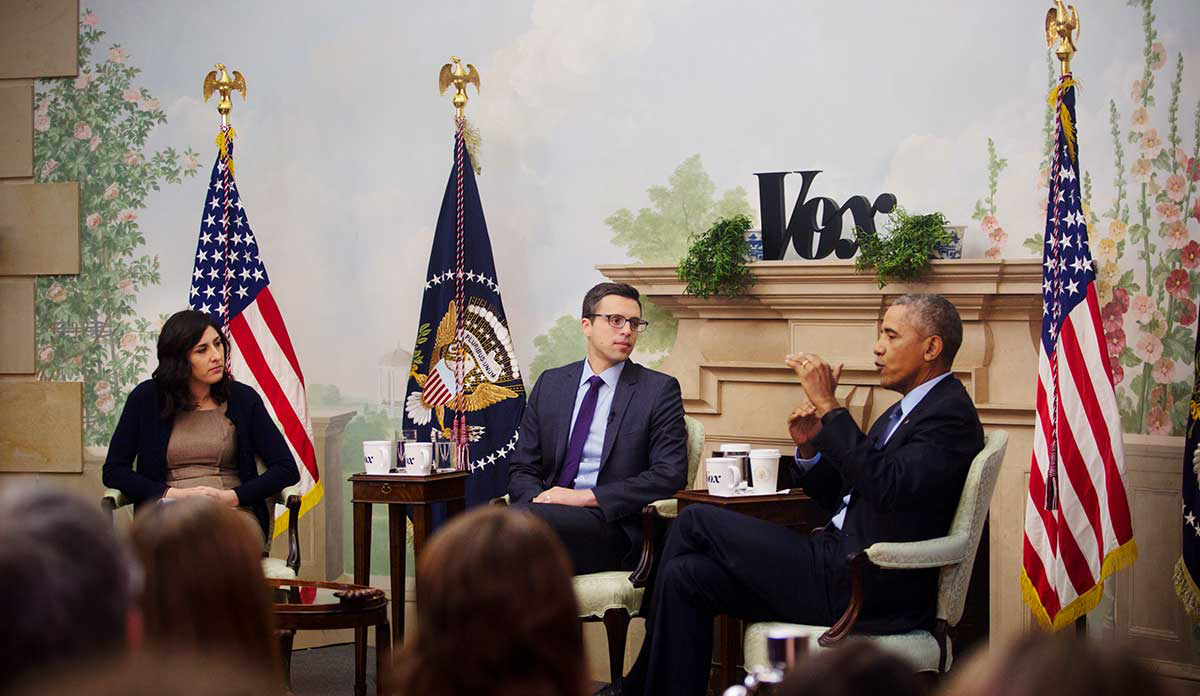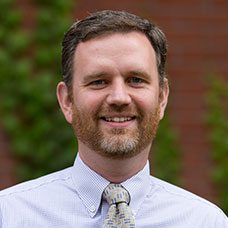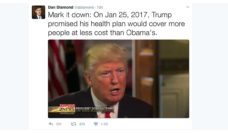Sarah Kliff sat down with PHP editor-in-chief David Jones for an interview at the Vox headquarters in Washington, D.C. to talk about her career and the challenges of ‘explaining the news.’
DKJ: I’m curious how you got started, including how you landed on covering heath at Politico?
SK: So I kind of got into healthcare a little bit by accident. I was super involved in my college paper at Washington University and I figured when I graduated someone would pay me to do this thing I was doing for free. So I got this internship with Newsweek that turned into a full time job as an assistant to the national news editor during the 2008 election. That ended and I went back to healthcare but I was still interested in politics, and this is right when the ACA debate is starting. I’d actually written a lot about reproductive health in the political context and then this debate over abortion coverage in the ACA started and that was kind of like, the gateway drug of sorts. And when you want to understand one thing about the ACA, you have to learn ten other things, and then you just fall down this rabbit hole. And eight years later I’m still down it!
What led you to focus on state implementation of the ACA?
Politico was posting this job writing their healthcare newsletter Pulse right after the law passed, and I was still really interested in covering it, so I applied for that and got it. A lot of people really wanted Congress and I proactively chose state implementation of health reform because I thought it was a good beat. In Congress nothing was happening, it was just a lot of gridlock. But states were actually making real decisions. I also liked it because state legislators were so accessible. You can just call their cell phones. You can call their house and their kid picks up!
How do you sort through all the data and evidence, I mean the stuff that it almost takes a PhD to understand, and even then it’s hard?
I feel like someone should give me a PhD for, like, the time I spent learning about healthcare! I think it’s almost similar to being a graduate student or PhD student in a way. You kind of have to accept there’s a lot you don’t know.
I pretty regularly read Health Affairs and relevant articles in JAMA or the New England Journal of Medicine; they all have press lists that I’m on. I’d say Health Affairs in particular is probably the most aligned journal with what I do. I think a lot of my familiarity with the literature comes from actually talking to professors and talking to people who are doing the studies, who will then refer me to other relevant research. Talking to people who know the space I think has been really key.
And do you find academics write in a way that’s useful for you? What can we do better to make our work more accessible?
Yeah! Generally, I think the thing that helps me most is getting back to me when I email. I love when academics are like, “hey, by the way if you’re writing about this, I did this research.” It feels way more legitimate than coming from a press office. I don’t want to throw university press offices under the bus, but it’s so much easier just to deal straight with who worked on the research.
Journalists are always looking for interesting stories that other people haven’t stumbled on, like things that are kind of going unnoticed but maybe are a big public health victory that is hard to see.
What role do you see a journalist playing in explaining vs. just reporting on “here’s what happened yesterday”?
That’s kind of at the core of Vox’s mission. Like if you see on our website, it says, “explain the news.” There’s this sort of video about Vox, where [Ezra] says “we’re kind of like the vegetables,” like the thing you had to eat. But you can have really terrible vegetables or you can have really good vegetables. We decided policy was boring so we didn’t try and make it interesting. And the idea we had at Vox was like, “well a lot of people do want to know.” There is a hunger for actually good information, and I think that’s particularly true in an era where there’s so much information to choose from.
How do you deal with this in the era of “alternative facts” in which President Trump has made the media his enemy?
I think it’s hard. A lot of the data I rely on comes from the government. We had that whole fight about crowd size that was kind of silly and absurd but at least you could adjudicate that with photographs. One of the things I’m a little nervous about as someone who focuses on explanatory journalism, is what kind of data we’re going to get out of the Trump administration. Because I think that’ll be a lot harder to adjudicate. You can’t look at picture of all the insured people in America and say, “Those numbers don’t seem quite right.” I don’t know what it’s going to be like. We’re on day ten but it feels like it’s been months already [laughs]!
What was it like interviewing President Obama?
Yeah, kind of terrifying! It was great. We thought it went really, really well. I think both Ezra and I were nervous, but felt prepared. If there was anything I was going to have a conversation with the President about, I would definitely pick the Affordable Care Act.
We didn’t really want to get into the politics of the Affordable Care Act. We had the opportunity, you know, we could ask whatever we wanted. We really wanted to keep it focused on some of these bigger-picture, structural questions around the ACA. President Obama termed it kind of a ‘wonk-fest’ [laughs]. It also just felt great that we’ve been around for three years and we were doing one of the last interviews with the president, really like the only extended interview we’ve seen him give on the Affordable Care Act, and right as he was leaving office. So it was really exciting. It was stressful, but I’m glad it happened and I’m glad it’s over.
So do you have any predictions? What do you see coming out of this Congress on the ACA?
I think repeal is going to be way, way harder than I thought a month or two ago. There was a lot of disarray with Democrats in 2009 when they were trying to do health reform, but they always had the same goal. They wanted to increase coverage. I think one of the reasons we’re seeing this struggle on the Republican side is I don’t think it’s really clear what the goal is, unless the goal is just repealing Obamacare. I think a good example of this tension is the conversation around deductibles. Where there’s like a ton of rhetoric like ‘The deductibles are too high!” and this is the biggest problem with Obamacare. But then you look at all Republican replacement plans and they all rely on high deductible health plans. I don’t know that the Republicans have a clear idea.
How do you think about the role of public health in this conversation? How does public health overcome its disadvantages in trying to get its voice heard in such a crowded, noisy fight?
I think you’re right that it is a challenge. Because health insurance you can see, right? Like when you get a policy, you get a card, and you see health insurance expanding. Whereas it feels like you only see the failures of public health. The success of public health is often quite invisible.
I think in particular for researchers who want to get the work out that they do on public health, look for journalists you respect, who you think cover the types of things you work on and feel totally fine reaching out to them. You’re an expert. Journalists are always looking for interesting stories that other people haven’t stumbled on, like things that are kind of going unnoticed but maybe are a big public health victory that is hard to see.
Feature image: Sarah Kliff and Ezra Klein, editor-in-chief of Vox, interviewing President Obama. Courtesy of Sarah Kliff. Photo: Kainaz Amira, Vox.















